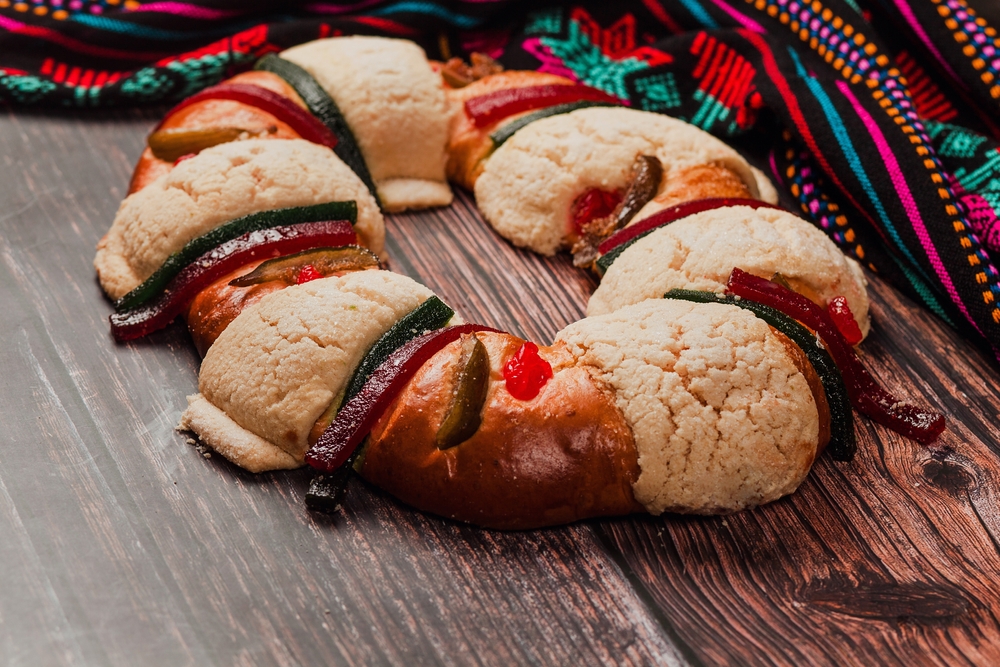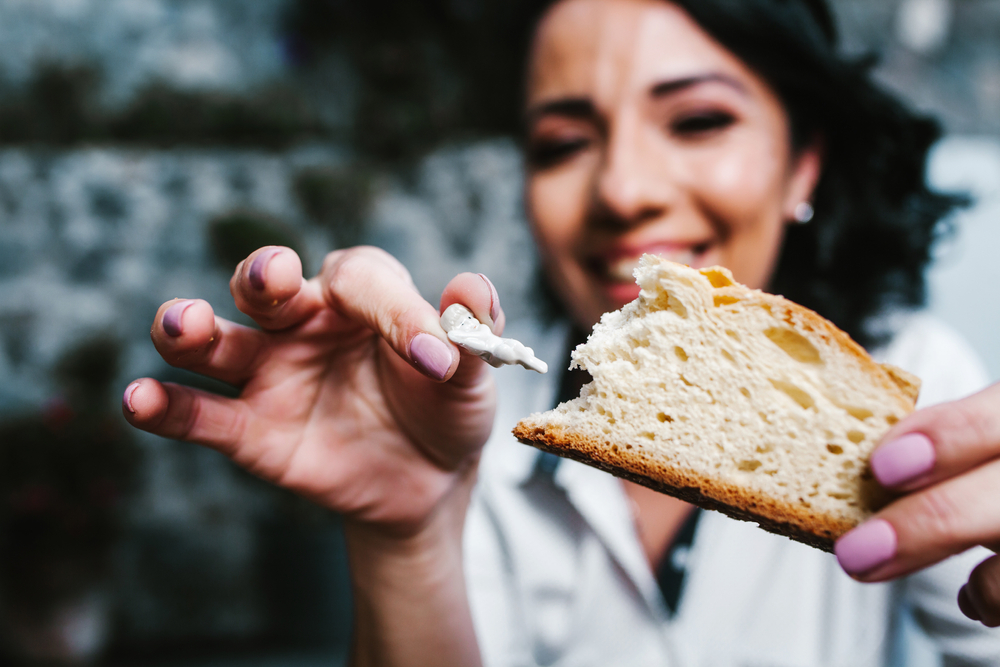Rosca de Reyes
Rosca de reyes, or "ring of kings," is a traditional Mexican sweet bread served on January 6th to celebrate Día de los Reyes (Epiphany). This ring-shaped bread is adorned with candied fruits to symbolize the jewels in the wise men's crowns and often hides a small figurine of baby Jesus inside, representing the flight to Egypt. Sharing a rosca is a festive tradition where the person who finds the figurine is tasked with hosting a party on Día de la Candelaria (Candlemas) in February. Its roots trace back to Spain but have evolved in Mexico to reflect the country's unique cultural flavors. The bread’s delicate texture, sweet aroma, and vibrant decoration make it a centerpiece for family gatherings and celebrations.
Recipe Servings: 10–12
+ 3 hours resting
Ingredients
Dough:- ½ cup (120 ml) warm milk (about 110°F / 45°C)
- ¼ cup (60 ml) warm water (about 110°F / 45°C)
- ½ cup (100 g) granulated sugar, divided
- 2¼ tsp (1 packet) active dry yeast
- 4 cups (500 g) all-purpose flour
- ½ tsp (2 ml) salt
- 3 large eggs
- 1 tsp (5 ml) vanilla extract
- 1 tsp (5 ml) grated orange zest
- ½ cup (115 g) unsalted butter, softened
- 1 small figurine or dried bean (to hide in the bread)
- ¼ cup (60 g) unsalted butter, softened
- ¼ cup (50 g) granulated sugar
- ½ cup (60 g) all-purpose flour
- Assorted candied fruits (e.g., figs, cherries, or orange slices)
- 1 egg, beaten
Directions
- In a small bowl, mix the warm milk, warm water, and 1 teaspoon of sugar. Sprinkle the yeast over the top, stir gently, and let it sit for 5–10 minutes until frothy.
- In a large mixing bowl, combine the flour, remaining sugar, and salt. Add the yeast mixture, eggs, vanilla extract, orange zest, and softened butter. Mix until the dough starts to come together.
- Transfer the dough to a floured surface and knead for 8–10 minutes until it is smooth and elastic. Alternatively, use a stand mixer with a dough hook for 5–7 minutes.
- Place the dough in a greased bowl, cover with plastic wrap or a damp cloth, and let it rise in a warm place for 1½–2 hours, or until doubled in size.
- Punch down the dough and roll it into a long cylinder. Form the cylinder into a ring, sealing the ends together. If using a figurine or bean, insert it discreetly into the dough. Place the ring on a baking sheet lined with parchment paper.
- Cover the shaped rosca with a damp cloth and let it rise for another hour, or until it becomes puffy.
- In a small bowl, mix the softened butter, sugar, and flour until it forms a crumbly paste. Divide into portions and shape into strips or small disks. Arrange the topping on the dough in a decorative pattern. Add candied fruits between the topping pieces.
- Preheat the oven to 350°F (175°C). Brush the dough with beaten egg to give it a golden finish during baking.
- Bake the bread in the preheated oven for 25–30 minutes, or until golden brown. Check for doneness by tapping the bottom of the bread; it should sound hollow.
- Let the rosca cool on a wire rack before slicing. Share it with friends and family, and enjoy the tradition of finding the hidden figurine!
Making the Dough:
Making the Topping:
Notes
Rosca de reyes is best eaten fresh but can be stored in an airtight container for up to 2 days. It pairs wonderfully with hot chocolate or atole for a festive treat.
Copyright © 1993—2024 World Trade Press. All rights reserved.

 Mexico
Mexico 
